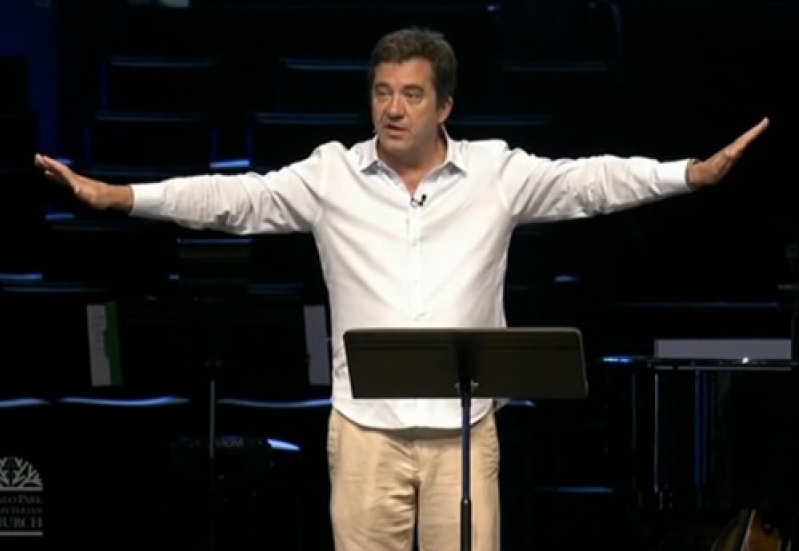
Christian author and clinical psychologist Dr. Henry Cloud spoke at Menlo Park Presbyterian Church on Sunday, highlighting the importance of relationships and their effect on cognitive functioning. The church, which uses a myriad of Cloud’s books in their ministry programs, is doing a series on marriage and relationships called “Too Close for Comfort.” Dr. Cloud gives nationwide seminars on relationships, co-hosts the New Life Live radio program, and has written numerous books including Boundaries and God Will Make a Way.
In his message to the church in Northern California, Dr. Cloud relayed how scientific study of the brain validates God’s design in the Bible. He described the brain as having two parts; one that functions according to logic, and one that is reactionary. The latter function propels a person to fight or to flight in the face of a threat, shutting down the rational parts of the brain when activated; if a person is under high stress, he said, their rational thinking can be inhibited because the problem solving part of the brain is shut down. This can affect relationships, especially when one or both parties are under high stress, inhibiting their ability to reason with one another.
Dr. Cloud’s advice is to maintain a positive, non-threatening atmosphere in relationships. “For peoples’ hearts, minds, and souls to connect with us, they must be in a positive emotional climate as opposed to a toxic emotional climate that puts them under threat,” he said. He warned against actions and words that can wound others, causing them to react in a fight-or-flight manner.
He further explained that the brain needs three types of ‘fuel’ to develop and to grow: oxygen, glucose, and relationship. Cloud cited studies which reveal that children who lack loving relationships can have underdeveloped brains, even though their physical needs are being met. He said that human relationships have a unique way of helping the brain function with reason, productivity, and creativity, and can greatly reduce stress. He emphasized the need for community – when people begin to realize that they are not alone in their struggles, they begin to think more clearly and their brains can function better (see 1 Corinthians 10:13 and James 5:16).
“The chemistry [in the brain] changes from sewage water to jet fuel” when people are in relationship, Dr. Cloud said. He referenced Paul’s letter to the Colossians, where the apostle encourages believers to be in community – “that their hearts may be encouraged, being knit together in love, to reach all the riches of full assurance of understanding and the knowledge of God's mystery, which is Christ, in Whom are hidden all the treasures of wisdom and knowledge” (Colossians 2:2-3, English Standard Version).
Just before Jesus was crucified, He prayed for His church to be unified (see John 17:11) - Cloud noted that the Lord didn’t pray for resources or for His strategy to make disciples to flourish, but rather He prayed that His people would be unified in relationship. Said Cloud to the congregation, “I am so glad that the Person Who invented the brain wrote the Bible … do [life] in relationship and you’ll always win.”






